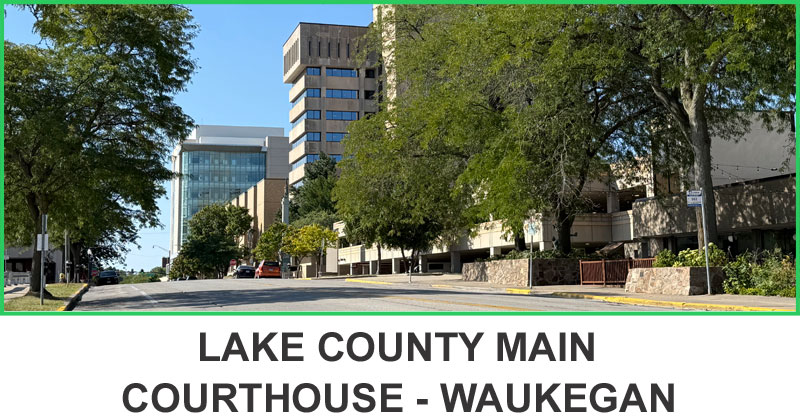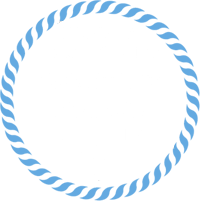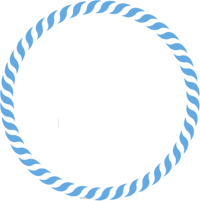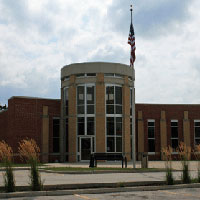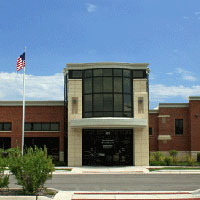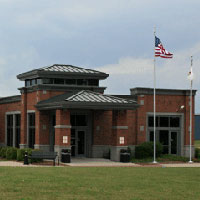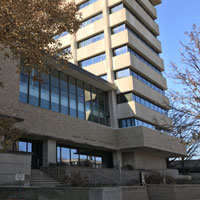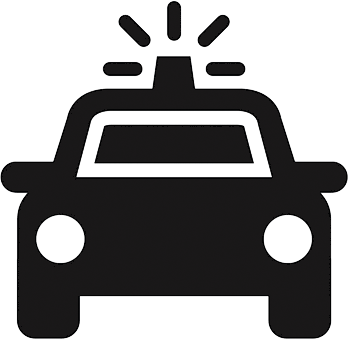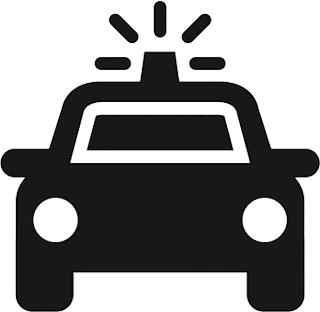Defending Drivers Under Age 21 in Lake County Illinois Traffic Court
Office Located in Waukegan

Matt Hoffman
Former Lake County Assistant State's Attorney
25+ Years in Lake County
Former Felony Prosecutor

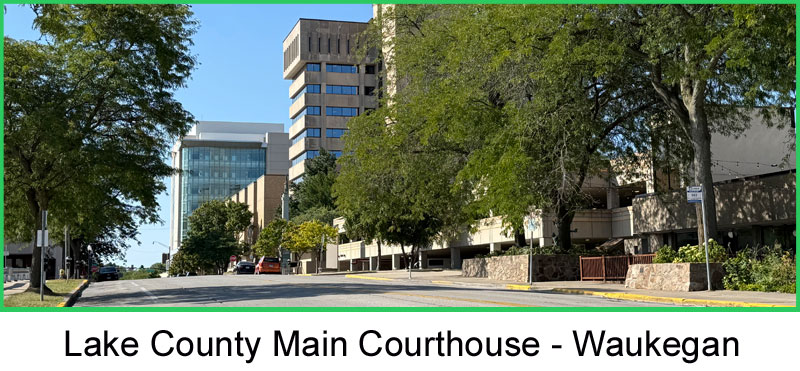
Work with a Former Lake County Traffic Prosecutor
Work with a Former Lake County Traffic Court Prosecutor
The HoffmanLaw Office defends drivers who are under the age of 21 against traffic tickets and alleged moving violations at the Lake County, Illinois traffic courts located in Mundelein, Park City, Round Lake Beach and Waukegan. Call The HoffmanLaw Office at (847) 587-5000 for a free consultation.
Defending Drivers on the Illinois Graduated Licensing Program
The Illinois Graduated Licensing Program governs Illinois driver's license holders who are under 21.1 Different rules apply to these drivers, compared to the rules that govern Illinois driver's license holders age 21 and over.
Violations of these different and more stringent rules can have negative effects on driving records and driving privileges.
Some of these rules limit the number of passengers a Graduated Driver's License ("GDL") holder may transport, establish nighttime driving restrictions, and completely ban any type of cell phone use while driving.
Violations can prohibit the issuance of a GDL until at least the age of 18, extend the duration of phased licensing restrictions already built into the GDL Program, or even lead to the outright suspension of an already-issued GDL.
More than 25 Years of Experience in the Lake County Traffic Courts
My name is Matt Hoffman. I defend drivers who are under the age of 21 in the Lake County, Illinois traffic court system.
I'm a former Lake County traffic court prosecutor and former Lake County Assistant State's Attorney. I've been working on traffic tickets issued to under-21 Lake County drivers since 1999.
In fact, I've been defending under-21 Lake County drivers since many of the current provisions of the Illinois Graduated Licensing Program originally were implemented, which was in 2008.2
I understand the unique issues that arise in traffic court prosecutions against Lake County GDL drivers. I work to achieve effective resolutions in GDL cases that not only keep my clients on the road, but also keep their driving records as clean as possible.
For a free, zero-obligation consultation, call me or fill out the form on this website.
Topics on this Page:
Three Phases of GDL Initial Licensing Ages 16-17 Passenger Limitations Nighttime Driving Restrictions Cell Phone Ban Full Licensing Ages 18-20 Permit Phase Age 15 Two Convictions Rule Alcohol Possession or Consumption Questions & Answers Case Evaluation / Contact The HoffmanLaw Office Office Location
Three Phases of the Graduated Licensing Program
Three Phases of the Illinois Graduated Licensing Program
As has been stated, the Illinois Graduated Licensing Program applies to Illinois driver's license and driving permit holders under the age of 21.
The Office of the Illinois Secretary of State describes three "phases" of licensing under the GDL Program.
The "Permit Phase" applies to drivers age 15. The "Initial Licensing Phase" applies to drivers age 16 and 17. The "Full Licensing Phase" applies to drivers age 18 to 20.

Getting a Lake County Traffic Ticket for an Alleged GDL Violation
Different rules, restrictions and penalties for violations apply to each of these separate licensing phases.
When an Illinois driver's license holder under age 21 allegedly violates any one or more of these provisions while driving a vehicle on a Lake County roadway, a police officer may issue one or more tickets to that driver alleging that violation or those violations of the GDL provisions.
In this way, the Illinois GDL laws themselves provide mechanisms by which traffic citations may be issued to drivers who allegedly violate the rules of the GDL licensing scheme.
The Lake County Court System Shares Information with the Office of the Illinois Secretary of State
If a GDL driver subsequently is found guilty of one or more such alleged violations, that information will be forwarded by the Lake County court system to the Office of the Illinois Secretary of State for recordation on the driver's record.
Then, any statutorily-mandated negative action will be taken against the GDL driver, possibly further limiting their driving privileges.
In proceeding with discussion of the three GDL licensing phases, the order of review shall be as follows: Discussion will be held on the Initial Licensing Phase for ages 16 and 17. This licensing phase has a great many rules and restrictions.
Next, discussion will be on the Full Licensing Phase of ages 18 through 20. Lastly, brief attention will be paid to the Permit Phase of age 15.
The Initial Licensing Phase: Ages 16 and 17
The Initial Licensing Phase: Ages 16 and 17
During the Initial Licensing Phase that applies to Illinois GDL holders age 16 and 17, drivers are subject to a number of license and driving restrictions. These restrictions include passenger limitations, driving curfews, and a cell phone use ban while driving.
Under Age 18 Driver General Passenger Number Limitation
Under Age 18 Driver General Passenger Number Limitation
GDL drivers under age 18 are limited on the number of passengers they may transport in their vehicles. They are permitted to drive with a maximum of one front seat passenger, and with no more back seat passengers than the number of available back seat seatbelts.3
The Graduated Licensing Program sets up a number of different reasons why this general under-18 passenger limitation will be continued beyond the GDL holder's 18th birthday.
All of these reasons are based on convictions for violating GDL rules or other traffic laws.
Penalties for Violations in the 6 Months Before Turning 18
If, during the six months preceding their 18th birthday, a GDL holder is ticketed for violating a GDL rule, a moving violation, or a seatbelt violation, and then is convicted on that ticket, this general GDL passenger limitation will be continued for at least 6 months.
This means it will continue to exist beyond the driver's 18th birthday.
During that six-month continuation, the GDL holder is required to avoid new violations and subsequent convictions for GDL rule violations, moving violations and seatbelt violations.
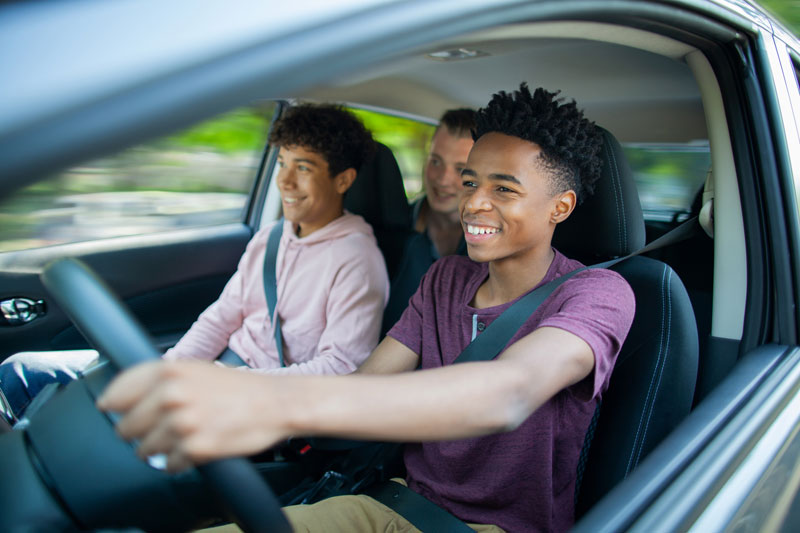
The Legislative Intent Behind the GDL System for Younger Drivers
As is seen here, in this Initial Licensing Phase governing GDL drivers ages 16 and 17, what the Graduated Licensing Program is doing is establishing a specific type of license limitation‐‐ in this case, a general passenger limitation‐‐ and then is establishing a wide number of parameters under which this limitation will be continued.
As an attorney, when I reflect on the practical function of this statutory construct, the legislative intent behind it becomes very clear. This construct is not unlike that between parent or guardian and child.
A parent or guardian may extend more and more freedoms to their teenaged child. The child then is expected to exercise that freedom in a responsible manner.
Violations of that freedom, however, will lead to consequences, to restrictions on that freedom or, perhaps, to withdrawal of that freedom altogether.
Thus, in this initial review of just one component of Illinois' GDL laws, the intent of the legislature is revealed. The State of Illinois views driving as a "privilege," not as an inherent legal right.
GDL holders who are in the Initial Phase of licensing during ages 16 and 17 are granted the freedom to drive. But at the same time, those drivers are involved in a testing phase, a phase that both limits their driving freedoms and tests them to see if they can and will comply.
When a GDL Driver May Have Only One Passenger Under Age 20
Additionally, for the first 12 months of holding a GDL or until reaching age 18, whichever comes first, GDL holders may not drive with more than one passenger who is under age 20. Exceptions apply to passengers who are siblings, step-siblings, children or step-children of the driver.4
Penalties for Violations in the First 12 Months
If, during the first 12 months of holding a GDL, a GDL holder is ticketed for violating a GDL rule, a moving violation, or a seatbelt violation, and then is convicted on that ticket, this single passenger under age 20 limitation will be continued for at least 6 months.
During that six-month continuation, the GDL holder is required to avoid new violations and subsequent convictions for GDL rule violations, moving violations and seatbelt violations.
Driving Curfews for GDL Holders Under Age 18
Driving Curfews for GDL Holders Under Age 18
In a Section of the Illinois Vehicle Code that actually is separate from the specific Graduated Licensing Program Section, nighttime driving restrictions, or "driving curfews," are put into place for GDL holders who are under age 18.5
Specifically, Illinois GDL holders who are under 18 may not drive at all during the following times:
• Between 11:00 p.m. Friday and 6:00 a.m. Saturday;
• Between 11:00 p.m. Saturday and 6:00 a.m. Sunday; and
• Between 10:00 p.m. Sunday to Thursday and 6:00 a.m. the following day.
This nighttime driving restriction law goes so far as to state that the GDL of an under-18 driver, "as a matter of law" is "invalid" for driving during those times. There are a number of listed exceptions to this rule.6
Reasons the Nighttime Driving Restrictions Will Be Extended
If, during the six months preceding their 18th birthday, a GDL holder is ticketed for violating a GDL rule, a moving violation, or a seatbelt violation, and then is convicted on that ticket, these nighttime driving restrictions will be continued for at least 6 months.7
During that six-month continuation, the GDL holder is required to avoid new violations and subsequent convictions for GDL rule violations, moving violations and seatbelt violations.

Total Cell Phone Usage Ban for GDL Holders Under Age 19
Total Cell Phone Usage Ban for GDL Holders Under Age 19
There is also a total cell phone usage ban in place for GDL holders who are ages 16 through 18 (as well as for permit holders age 15).
GDL holders under 19 may not drive on a roadway while using a wireless phone. This includes use of a hands-free device. Exceptions apply for emergency situations.8
Reasons the Total Cell Phone Usage Ban Will Be Extended
If, during the six months preceding their 18th birthday, a GDL holder is ticketed for violating a GDL rule, a moving violation, or a seatbelt violation, and then is convicted on that ticket, this general total cell phone usage ban will be continued for at least 6 months.9
During that six-month continuation, the GDL holder is required to avoid new violations and subsequent convictions for GDL rule violations, moving violations and seatbelt violations.
Looking closely at this possible extension, it may be seen that in a specific scenario, the total cell phone usage ban could be extended beyond age 19.
The Full Licensing Phase: Ages 18 Through 20
The Full Licensing Phase: Ages 18 Through 20
Once an Illinois GDL holder reaches age 18, except for the cell phone use ban just-discussed, the foregoing age-related license restrictions no longer apply-- if they have not been extended or continued for violations that occurred during the Initial Licensing Phase.
This means that a GDL holder who successfully moves through the Initial Licensing Phase, upon turning 18, no longer will be subject to the passenger limitations and nighttime driving restrictions described above.
For this reason, it is critical that the GDL holder successfully moves through the Initial Licensing Phase, if that driver wishes to graduate to the Full Licensing Phase.
The Permit Phase: Age 15
The Permit Phase: Age 15
Under the GDL Program, a driving instruction permit may be issued to a driver who is age 15.10
This permit is not a graduated driver's license, but instead is a permit to drive under a number of specific conditions only.
Just as they do during the Initial Licensing Phase, passenger limitations, nighttime driving restrictions, and cell phone usage bans apply to permit holders.
Convictions for Traffic Tickets Will Delay GDL Eligibility
If an Illinois driving permit holder is under age 18 and has been ticketed for and subsequently convicted of violating a GDL rule, a moving violation, or a seatbelt violation, then that driver will be ineligible to obtain a graduated driver's license for at least 9 months.11
Driving Without a Permit or License Will Delay GDL Permit or License Eligibility
For a prospective Illinois driver's permitee or licensee who is under the age of 18, the penalty for driving without a valid permit or license altogether is especially severe.
"No graduated driver's license or permit shall be issued to any applicant under 18 years of age who committed the offense of operating a motor vehicle without a valid license or permit . . ."12
In this regard, and by way of example, if a 14 or 15 year old is ticketed for driving without a permit and then is found guilty in court, that person will not be able to obtain a GDL until they are at least 18 years old.
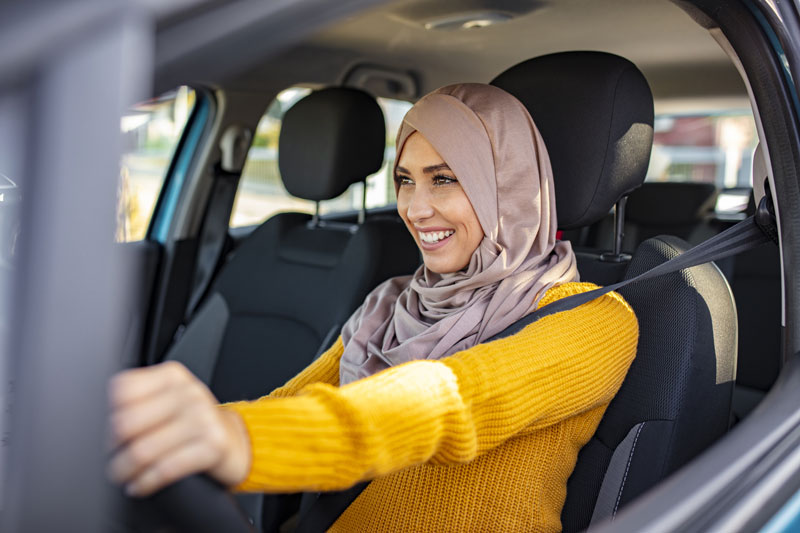
The Two Convictions for Violations in 24 Months Rule
The Two Convictions for Violations in 24 Months Rule
We've reviewed the different phases of Illinois' GDL system for licensing younger drivers. This review has touched on various reasons entry into GDL phases might be delayed, as well as reasons restrictions integral to any particular licensing phase may be extended or continued.
There is, however, another rule that applies to all Illinois GDL holders. This includes GDL holders who are in the Initial Licensing Phase of ages 16 and 17, as well as those in the Full Licensing Phase of ages 18, 19 and 20.
If an Illinois driver's license holder who is under 21 years of age is ticketed for 2 moving violations that allegedly occurred within a single 24 month period, and is convicted of those violations, their driver's license will be suspended.13
The length of the suspension will be determined by the severity of the charges on which the convictions occurred.14
Efforts to Remove a GDL Moving Violation Suspension by Addressing an Underlying Conviction in Court
The HoffmanLaw Office works with Illinois driver's license holders under the age of 21 whose driver's licenses have been suspended because of this two-conviction rule in cases involving convictions for one or more Lake County moving violations.
In certain cases, it may be possible to bring a prior ticket that led to a conviction back up into court in an effort to "vacate" or undue a judgment of conviction.
This approach is one potentially-available strategy to try to remove this type of "two-in-two-years" driver's license suspension entered against an Illinois GDL holder.
Effect of Underage Possession or Consumption of Alcohol on Illinois Driving Privileges
Effect of Underage Possession or Consumption of Alcohol on Illinois Driving Privileges
An Illinois driver's license holder who is under the age of 21 is at risk of a driver's license suspension if they are charged with the offense of unlawfully possessing or consuming alcohol and they were an occupant of a motor vehicle when the offense allegedly occurred.
If an Illinois GDL holder is placed on court supervision for this offense, their driver's license will be suspended for 3 months.15
If an Illinois GDL holder is convicted this offense, their driver's license will be suspended for 6 months for a first conviction and 12 months for a second.16
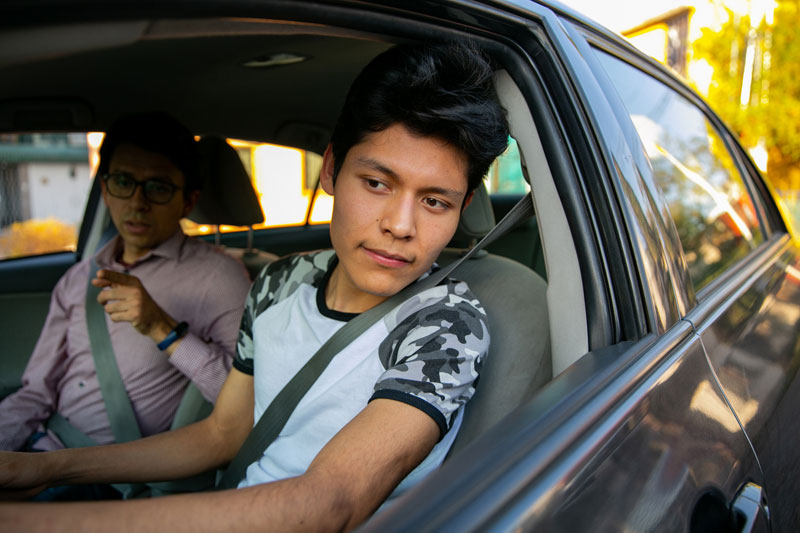
Work with an Attorney Who Knows Lake County GDL Law from Both Sides
Work with an Attorney Who Knows Lake County GDL Law from Both Sides
I've been defending drivers in the Lake County traffic courts since 2005. During that time, I've seen how Illinois GDL violations can create long-term consequences that extend well beyond a single court appearance.
My approach to defending these cases is built on 25 years of combined prosecution and defense experience in the same courts where Lake County GDL traffic tickets are heard: Mundelein, Park City, Round Lake Beach and Waukegan.
As a former Lake County Assistant State's Attorney and traffic ticket prosecutor from 1999 to 2005, I understand how these cases are investigated, charged, and prosecuted.
This background allows me to identify weaknesses in the prosecution's case and to develop targeted defense strategies.
My experience includes defending drivers through every aspect of the GDL system since the current program was implemented in 2008.
I've handled cases involving passenger limitation violations, nighttime driving restriction violations, electronic communication device usage violations, and the complex "two convictions in 24 months" suspension rule.
I've worked also with Lake County GDL drivers to address underlying convictions through post-conviction proceedings in efforts to get my clients legally back on the road.
The systematic approach I bring to every case— thorough analysis, intensive preparation, and focused advocacy— reflects my understanding that each alleged GDL violation case is unique.
To me, the facts matter, the specific charges matter, and the driver's individual circumstances matter. I work to develop defense strategies that address not only the immediate charges but also the potential long-term effects on my GDL client’s driving privileges.
Over time, I’ve focused my practice on defending Lake County drivers, which means I understand the local court procedures and the most effective approaches for achieving favorable outcomes in the particular courtrooms where I practice trial law.
This focused experience allows me to provide representation that is both strategic and practical.
Your consultation with me is free and carries no obligation. Call me at (847) 587-5000 or fill out the contact form on this website to get in touch with me.
Statutory Sources:
1. 625 ILCS 5/6-107. 2. Public Act 095-0310, effective 01-01-2008. 3. 625 ILCS 5/6-107(e). 4. 625 ILCS 5/6-107(g). 5. 625 ILCS 5/6-110(a-1). 6. 625 ILCS 5/6-110(a-2). 7. 625 ILCS 5/6-110(a-3). 8. 625 ILCS 12-610.1(b) and (c). 9. 625 ILCS 12-610.1(d). 10. 625 ILCS 5/6-103(1) and 625 ILCS 5/6-107.1. 11. 625 ILCS 5/6-107(d). 12. 625 ILCS 5/6-107(c). 13. 625 ILCS 5/6-206(a)(36). 14. Title 92, Chapter II, Part 1040, Section 1040.29, Illinois Administrative Code. 15. 625 ILCS 5/6-206(43). 16. 625 ILCS 5/6-206(38) and Title 92, Chapter II, Part 1040, Section 1040.34, Illinois Administrative Code. 17. 730 ILCS 5/5-6-1(n). 18. 730 ILCS 5/5-6-1(h-1).
Why The HoffmanLaw Office?
Why The HoffmanLaw Office?

Analysis.
The HoffmanLaw Office always is focused on the presumption of innocence. Building on this presumption, The HoffmanLaw Office performs a systematic and searching ANALYSIS of the facts alleged in a Lake County GDL traffic ticket case. This intensive analysis may expose weakness in the prosecution's evidence and develops powerful defense arguments and strategies.

Preparation.
The HoffmanLaw Office strives to know completely the facts and law of a case. In traffic court, good results do not often emerge by chance. They come through intense PREPARATION that lays the groundwork for success. When you select The HoffmanLaw Office as your legal advocate, you team yourself with a philosophy of extreme preparation.

Results.
The HoffmanLaw Office views every time it appears in Lake County traffic court as an opportunity to achieve RESULTS. Whether it is negotiating during a pretrial conference, cross-examining a witness, or delivering a closing argument at trial, The HoffmanLaw Office strives to be your best advocate at all times.



